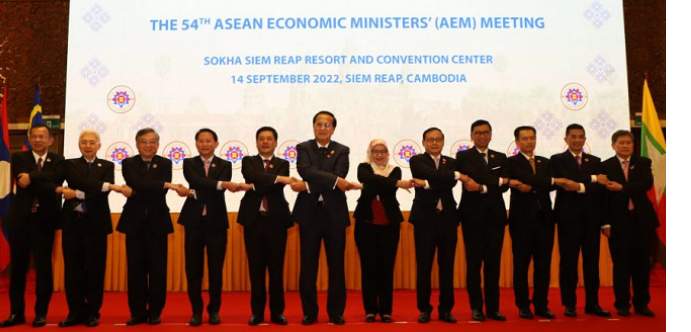 In a joint media statement of the Association of Southeast Asian Nations (ASEAN) released after the inaugural RCEP Ministers’ Meeting last September 18, 2022, the role of the Regional Comprehensive Economic Partnership (RCEP) in ASEAN post- pandemic resurgence has been highlighted.
In a joint media statement of the Association of Southeast Asian Nations (ASEAN) released after the inaugural RCEP Ministers’ Meeting last September 18, 2022, the role of the Regional Comprehensive Economic Partnership (RCEP) in ASEAN post- pandemic resurgence has been highlighted.
The ASEAN ministers reaffirmed their unshakeable commitment to regional economic integration in the face of ongoing pandemic-related difficulties and escalating geopolitical concerns. Additionally, RCEP could support the regional group’s post-COVID-19 recovery efforts, as they observe that the ASEAN economy expanded in 2021, supported by a strong recovery in trade, consumption, and investment, all of which were aided by the effective implementation of vaccination programs that allowed regional economies to reopen domestically. They believe that the impetus for growth will last through 2023.
Separately, the ASEAN ministers hailed the RCEP agreement, which was reached on January 1, 2022, and expressed optimism that all signatories states will ratify it.
The 15 Asia-Pacific nations, including 10 ASEAN members such as Brunei, Cambodia, Indonesia, Laos, Malaysia, Myanmar, Singapore, Thailand, Vietnam, the Philippines, and China, Japan, South Korea, Australia, and New Zealand—their five trading partners are a part of the mega-regional trade treaty. The only nations that have not yet ratified the RCEP pact are Myanmar and the Philippines.
The National Economic and Development Authority (NEDA) urged for the RCEP agreement to be ratified immediately, arguing that the Philippines must not be left behind with the ASEAN to show a clear signal that our country is open to investments that would generate more jobs. For further details, click on the link https://www.portcalls.
